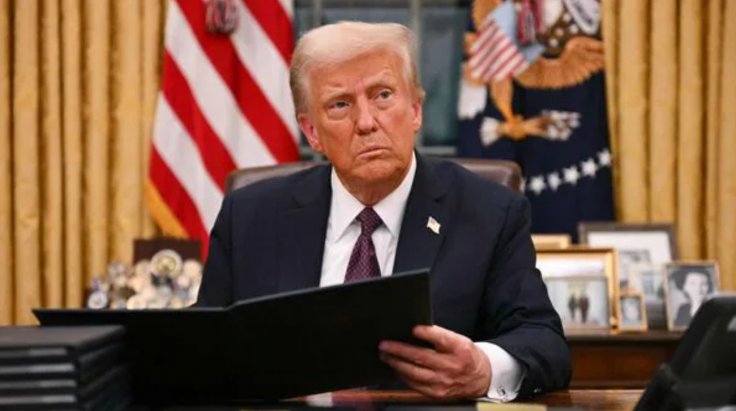US President Donald Trump has signed an executive order aimed at overhauling the U.S. election system. The sweeping action requires documentary proof of citizenship to register for federal elections and mandates that all ballots be received by Election Day.

The order claims the U.S. has failed to enforce "basic and necessary election protections." It directs states to share voter lists with federal agencies and prosecute election-related crimes. States that do not comply risk losing federal funding.
Tightening Voting Rules
Trump's directive demands that federal funding be linked to states enforcing stricter election measures. The order insists that votes must be "cast and received" by Election Day to count. This could eliminate grace periods for counting mail-in ballots, a contentious issue in past elections.
Legal experts predict strong opposition, as the U.S. Constitution gives states authority over election procedures. Similar voting restrictions have faced legal challenges in the past.
Election Assistance Commission Instructed to Act
The order directs the Election Assistance Commission (EAC) to update its guidelines. The changes aim to "protect election integrity" by enhancing security measures for voting systems.
Additionally, it bans foreign nationals from donating to U.S. elections. Trump's order states that loopholes have allowed foreign influence through indirect contributions and ballot initiatives. He warns that such interference threatens the country's electoral process.
Trump Compares U.S. to India, Brazil
In his remarks, Trump pointed to India and Brazil as models for election security. He said the U.S. lags behind in verifying voter identities.
"India and Brazil tie voter identification to biometric databases, while the United States largely relies on self-attestation for citizenship," Trump stated. He suggested that adopting stricter measures could restore public confidence in the voting process.
Paper Ballots and Chain-of-Custody Concerns
Trump also referenced Germany and Canada's voting systems, which require paper ballots for tabulation. He criticized the U.S. for its "patchwork" approach, arguing that some methods lack proper security and chain-of-custody protections.
His comments echo previous claims that electronic voting methods are vulnerable to fraud. However, multiple audits and court rulings have found no evidence of widespread irregularities in recent U.S. elections.
Crackdown on Foreign Influence
In a move to curb overseas contributions, the order bans foreign nationals from making donations to U.S. elections. This issue has been a growing concern, with Republicans particularly targeting Swiss billionaire Hansjörg Wyss for his alleged influence on Democratic campaigns. Trump's administration argues that restricting foreign donations will prevent outside interference and keep the election process transparent.
Legal Challenges Expected
Trump's order is likely to face legal battles, as previous efforts to impose voting restrictions have been struck down in courts. Opponents argue that strict voter ID laws disproportionately impact minority communities and low-income voters.
Despite legal hurdles, Trump's move signals continued focus on election security, a key issue for his political base. The executive action sets the stage for further debates on how U.S. elections should be conducted.









